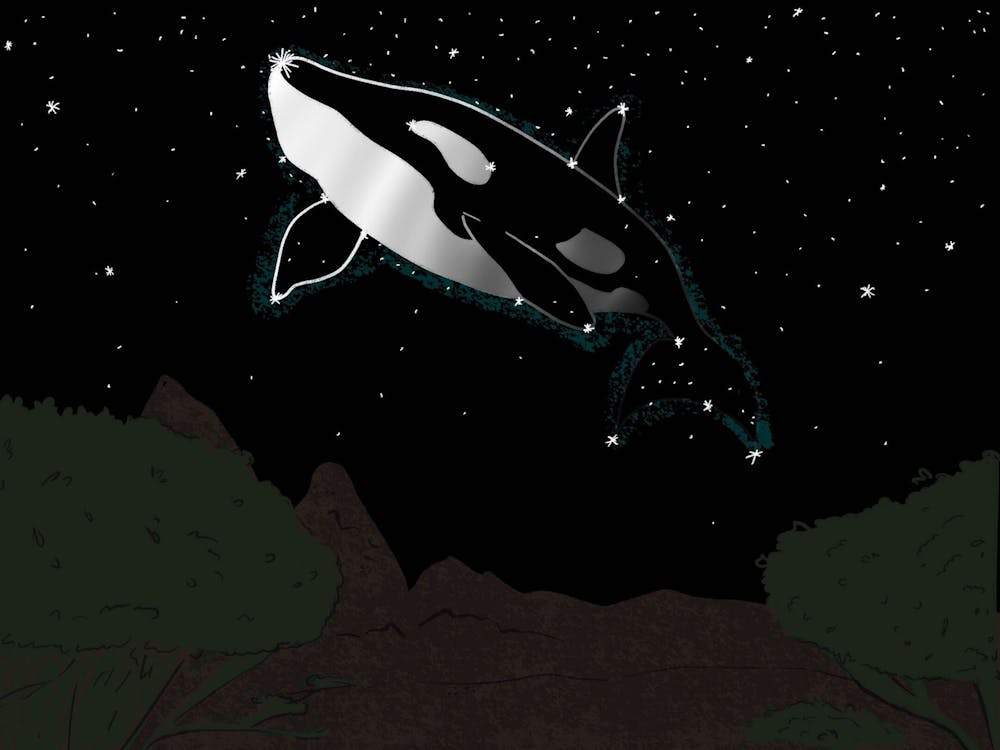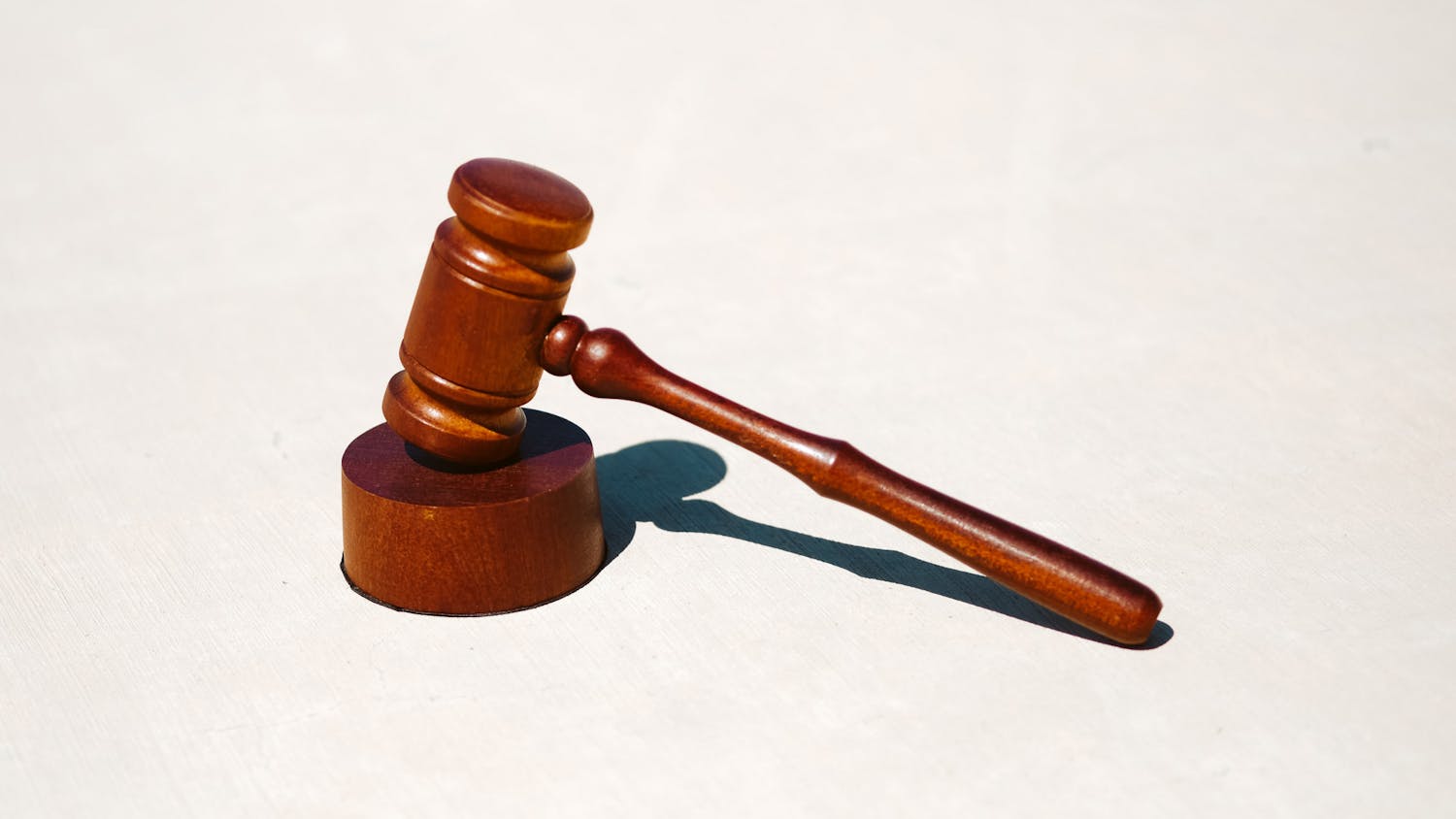The Lhaq’temish (Lummi) tribe’s fight to bring Sk’aliCh’elh-tenaut the orca back to the Puget Sound was successful. Non-Indigenous environmental activists can learn from their stories.
Sk’aliCh’elh-tenaut, also known as Tokitae or Toki, was captured in Penn Cove in Coupeville, Washington, by fishermen in 1970. At the Miami Seaquarium, where she has lived for the last 50 years, she is known as Lolita.
An orca-capturing spree in the 1970s decimated the orca population in the Puget Sound by 40%, according to KIRO7.
Sk’aliCh’elh-tenaut is the only survivor of the capture. While some non-Indigenous Gen Z environmental activists were busy joining the Sunrise Movement, a youth-led group focused on climate change, the Lhaq’temish people were working hard to bring Sk’aliCh’elh-tenaut home.
Many argue that non-Indigenous climate activists have stood with the Lhaq’temish tribe as well as Gen Z-led environmental groups, but the only outreach to the Native community from the movement comes in the forms of tweeting and protesting.
Indigenous people have consistently fought to protect the environment, such as their protests of pipelines that cause health issues within their own communities. Indigenous communities are left to clean up the mess when people don’t listen to them about the environment.
Squil-le-he-le (Raynell Morris) is a member of the Lhaq’temish tribe and a board member of Friends of Toki, a nonprofit dedicated to bringing Sk’aliCh’elh-tenaut home. She was instrumental in the movement.
As a former associate director of intergovernmental affairs under President Clinton, Squil-le-he-le is familiar with negotiation and strategy. Her career as an advocate for Indigenous people prepared her for Sk’aliCh’elh-tenaut’s journey.
Sk’aliCh’elh-tenaut was forced to perform the day after she witnessed the death of a male orca, who had been taken from the same pod a decade earlier. She was also forced to do tricks in the Miami heat, in two to four shows a day, in front of crowds of people.
Squil-le-he-le recalled one of her first virtual meetings with the CEO of The Dolphin Company, Miami Seaquarium’s new owner.
“I’m raising my hands for love and respect for you taking care of my relative,” Squil-le-he-le said to the CEO, holding her hands up, palms facing each other.
That gesture is part of Lhaq’temish culture, Squil-le-he-le explained.
“And so that’s when [the CEO realized] … I may be on the Friends of Toki board, but I’m different,” Squil-le-he-le said.
Things moved quickly after that. Sk’aliCh’elh-tenaut received better care and socialization. She had injuries from the time the previous owners fed her rotten fish and left her and over 200 other marine animals in their pools during the lockdown of March 2020. The Palm Beach Post also reported she was ill.
Squil-le-he-le hopes Sk’aliCh’elh-tenaut will come back to the Puget Sound soon. The logistics of getting the orca used to her old environment are unclear. Due to her long period in captivity, she will need to be kept in a pen in the ocean and monitored constantly.
“Orcas are highly intelligent, highly social animals, so she’s basically been in solitary confinement,” said Cindy Elliser, associate director at the Salish Sea Institute and marine mammalogist.
Elliser hopes Sk’aliCh’elh-tenaut can return to her family, though she said the outcome of her reintroduction to the pod is uncertain.
Sk’aliCh’elh-tenaut’s story is one of loss, hope and courage. The Lhaq’temish tribe’s commitment to bringing their relatives home is one example of Indigenous communities leading the fight for environmentalism.
Some environmentalists in non-Indigenous communities strive to listen to those most affected by climate issues.
Addy Ebrahimy became president of Western’s Queer Eco-Justice Club, an offshoot of the larger Queer Ecojustice Project, last December.
Ebrahimy said sustainability is a broad concept that connects people who care about many different issues. One person may care about eliminating greenhouse gasses while another could focus on reducing the amount of plastic that ends up in the ocean. Or some, like Squil-le-he-le, may save orcas.
“Each of the different communities can communicate with each other,” Ebrahimy said.
Her goal is to bring those communities together to create a place where everyone, no matter their environmental passions, can work together.
Ebrahimy recently attended a sustainability conference where she learned about the Andean culture’s concept of ayni, the idea that everything on Earth is connected.
“Now, in this quarter, I’m actually having the chance to take all of this info and bring it back into the work we’re doing [in the Queer Eco-Justice Club],” Ebrahimy said.
Squil-le-he-le recommends non-Native environmentalists take a bit of time to find out what traditional territory they’re on. She also says getting in touch with tribal youth councils and having conversations with them is a good way to get involved in climate activism.
Squil-le-he-le said she received guidance from her ancestors to bring Sk’aliCh’elh-tenaut back to Puget Sound.
“[They have] given me this sacred obligation and this ceremony … telling me to bring her home,” Squil-le-he-le said. “Bringing her home will repair that web of life that was broken when she was stolen. ... In repairing that web of life, we’ll repair with qwe'lhol'mechen, with orcas, and we’ll repair our community.”
When Sk’aliCh’elh-tenaut is back, Squil-le-he-le will remember what the ancestors said.
“We’re clearing your path to bring her home,” she said. “We’re clearing her path to come home, and her Lhaq’temish culture is going to ready and heal her spirit for the journey home.”
After multiple calls to Miami Seaquarium, the aquarium responded to an email and said it had not received The Front’s messages.
Cordelia Longo (they/them) is a senior at Western majoring in political science. In their free time, you can find them listening to Taylor Swift and asking to pet strangers' dogs.






